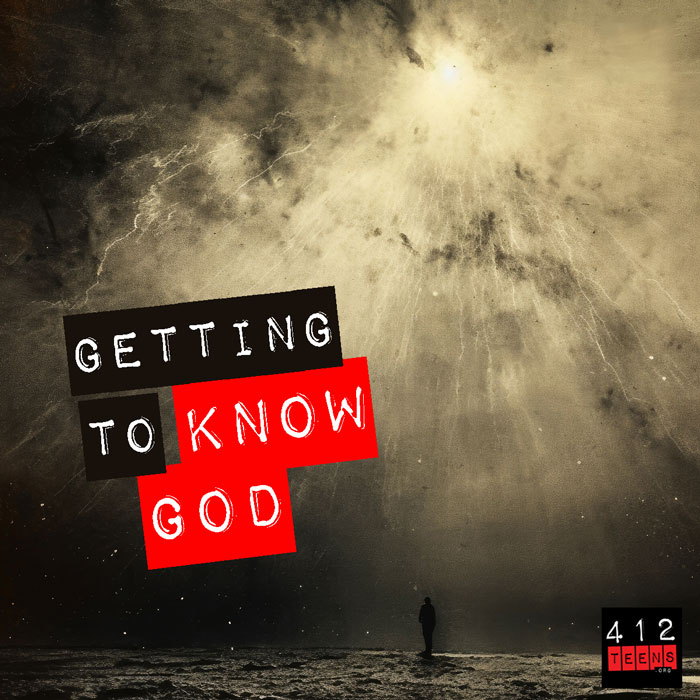Getting to Know God

How do you get to know someone you're not acquainted with?
Suppose that the person lived on the other side of the world or hundreds of years ago or has recently died—how would you learn more about them and what they are/were like? What if you couldn't communicate with them in any way? How could you know them better?
Could you look at things that person had created?
Looking at an artist's painting tells you something about their brush skill, what time period they lived in, and maybe what they desired to say with the piece. Observing an architect's building tells you something about their creativity, style, and, if it's still standing, the reliability of their designs. You might learn some vague things about them in this way. Although these would be true, any insights you gain would still only give you a blurry image of the person.
Could you read books about them?
What other people have said about their life in writing might be another next step in learning about a person. You could read biographies on their upbringing or their beliefs on different issues. You could study and explore their ambitions and accomplishments. Would that give you a fairly accurate picture of their character? Would you know the person personally yet? Hmm...maybe what others say about a person still isn't a complete picture either.
Could you read what they've written themselves?
You could try to gain an even better understanding of someone's life through reading what they have written themselves. Now you'll get an idea as to what the person was thinking about any given situation. An autobiography, interview answers, or other books the person has personally authored can give a comprehensive insight into their minds. If they are honest in what they say, it's like a sneak-peak into their inner thoughts.
Could you look at their pictures or videos?
Through images and videos, you not only get to hear what the person is saying, but you can see them doing it. "A picture says a thousand words," so they say, and "a video says a million." What a unique insight we can gain through media.
Could you talk to them in person?
One of the very best ways to get to know someone is to talk to them yourself, one-on-one. Of course, this may be impossible in some cases, such as if the person lived in the past or has died or is not physically present with you.
What can I do to know God?
When it comes to God, what can we do to know Him? Jesus isn't physically on the earth anymore, so how can we see Him, observe Him, or talk to Him? And God is invisible (1 John 4:12). As a result of this invisibility, many people declare that it is impossible to know God. They reason that, if we can't see Him, He probably doesn't exist, or even if He does, we certainly cannot know who He is—nevermind what He is like.
Despite the fact that we can no longer be in the physical presence of God on earth, we can still know both who God is and what He is like. Although we cannot see Him, God has revealed Himself in three main ways:
- God revealed Himself through His Creation. Our universe is like looking at what an artist has made in order to determine what he is like (Romans 1:20).
- God revealed Himself through the Law and the Prophets. The Bible is God-inspired, which is why it's also called "God's Word." What we read in the Bible is like reading what God says about Himself and His relationship with humanity (2 Timothy 3:15-17).
- God revealed Himself fully and finally through His Son, Jesus Christ. Jesus is the image of the invisible God (Colossians 1:15).
Where should I begin?
The Bible is God's love letter to us, so it's the perfect place to start in getting to know God's character—by seeing how He responds to people in both good and bad situations.
If God was faithful to His promises in the lives of the people in the Bible, we can know He will be faithful in our own lives too. If God has never lied before, we can be assured He won't lie to us (Numbers 23:19; Psalm 89:34). If God has been faithful to fulfill every one of His promises, we know He won't let us down (Joshua 21:45; 1 Kings 8:56).
God isn't like humans who change all the time, rather He is a steady, powerful, and loving God who has our best interests in mind (Hebrews 13:8; James 1:17). If you met a person with all of these attributes, you could surely trust them with your life.
ALSO SEE:
- Who is God?
- What kind of being is God?
- Who created God?
- What is God like?
- Why does God love us?
- What does it mean that God is omniscient?
- What does it mean that God is omnipotent?
- What does it mean that God is omnipresent?
- What does it mean that God is sovereign?
- How do I stop thinking of God as imposing and angry?
- How can I learn to trust God?
- How do I love God?
- Why is finding God so difficult?


TL;DR
Despite the fact that we can no longer be in the physical presence of God on earth, we can still know both who God is and what He is like. Although we cannot see Him, God has revealed Himself in three main ways: His Creation, His Word (the Bible), and His Son Jesus Christ.

Writer: M. A. Craig
M. A. Craig loves the outdoors (not great when you live in rainy Northern Ireland). He is a follower of Jesus, husband to Chloe, theologian, writer, and "father" to Lucy the pug.
